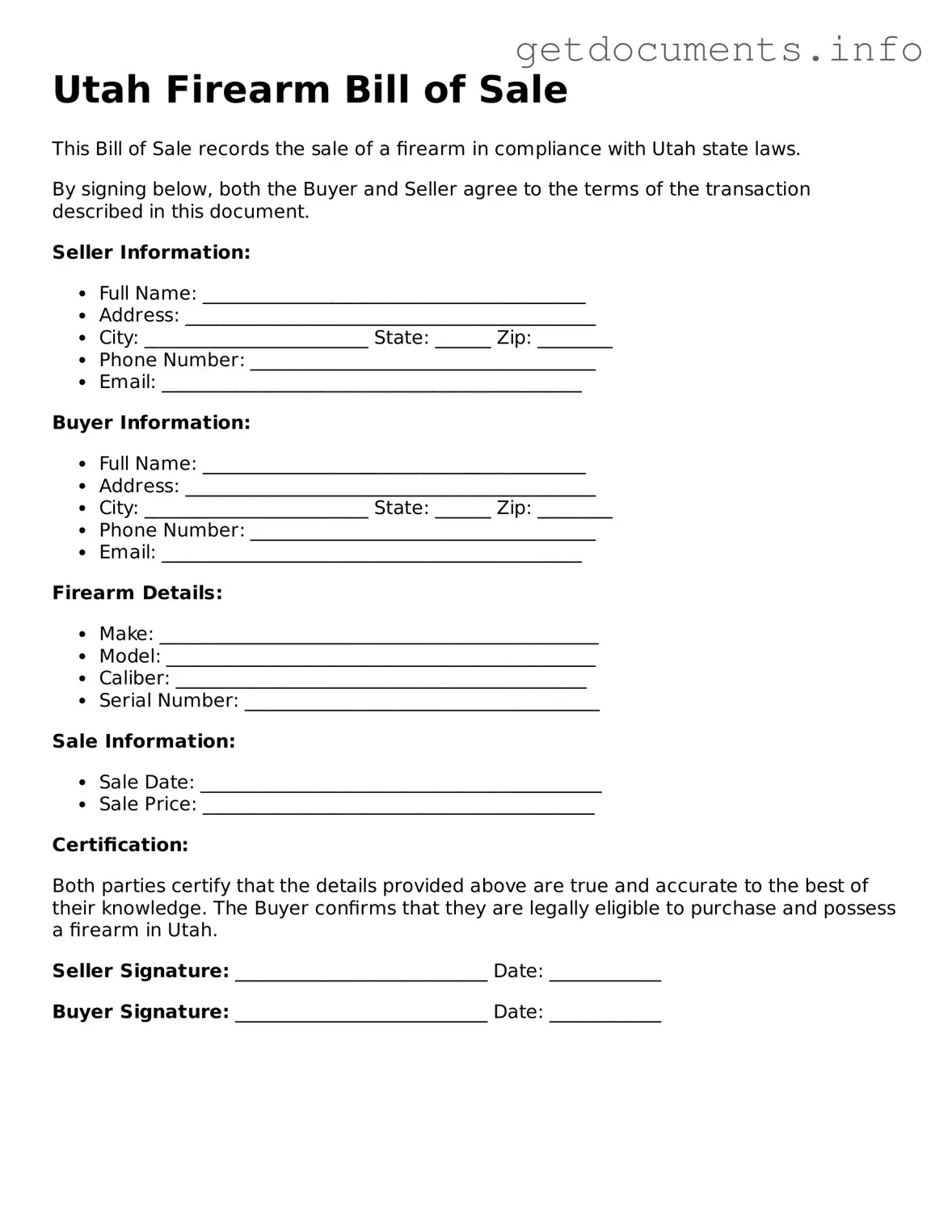Free Firearm Bill of Sale Template for Utah
The Utah Firearm Bill of Sale form is a legal document that records the sale or transfer of a firearm between two parties in Utah. This form serves as proof of the transaction and includes essential details such as the buyer's and seller's information, firearm description, and purchase price. To ensure a smooth and compliant transfer, it is important to fill out this form accurately.
Start the process by clicking the button below to fill out the form.
Access Firearm Bill of Sale Editor

Free Firearm Bill of Sale Template for Utah
Access Firearm Bill of Sale Editor
Got places to be? Complete the form fast
Fill out Firearm Bill of Sale online and avoid printing or scanning.
Access Firearm Bill of Sale Editor
or
⇩ PDF File
